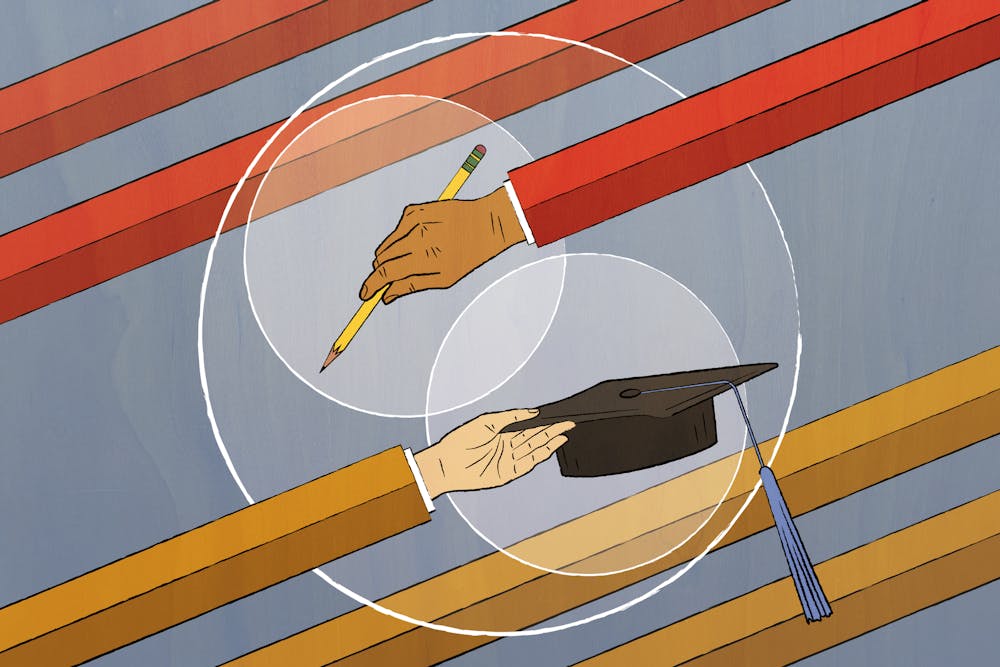Picture this: you are ten weeks deep into the semester, attempting to juggle five classes, three extracurriculars and some vague semblance of a social life. You’re running on a solid five hours sleep, a Celsius and the remaining straws of hope for a 4.0. Your professor turns around to you, hours before a 3000 word deadline and says “try not to stress too much, use your essay as a space to dream!”
The university system of pass, fail, take and retake inherently fosters a transactional approach to education. From the first day of class, we engage in a cycle of performance and evaluation, where success means achieving predefined outcomes and failure is met with the expectation of remediation.
This deeply ingrained attitude towards education is both a product and reflection of a larger economic system. In the United States, the commodification of education has a tangible effect that seeps into the way we perceive and pursue learning.
It is a system that not only commodifies education, but also forces us to commodify ourselves. We internalize the logic of the market, adhering to the idea that if we invest time and effort in our education, we will be rewarded. Graduates bring this attitude into the workforce, and so the cycle continues.
Truthfully, while this is a critical perspective, it is not a radical one. We are largely aware of how the system works and most students consciously or subconsciously have adopted ways to make it “work” for them. The education system is deeply ingrained in, and reflective of, capitalist culture, so change on a systemic level does seem like a long shot.
However, I don’t believe it is all doom and gloom. Yes, the larger picture might reveal such insights, but when we zoom in to the micro-level, it is an oversimplification.
Education can be both outcome-driven and personally enriching, the key just lies in your mindset.
It has become somewhat of a running joke among my classmates, “ugh, I have to read so much today.” The reply: “No, you get to read so much today!” This nugget of wisdom is usually met with an eye roll and a knowing smile. However, I believe there may be something real to be gleaned from it.
This calls attention to the fact that education is a privilege. That is not to make us feel bad, but to make us feel grateful. The opportunity to expand our knowledge and creativity in a community of like-minded students and academics is one that is rarely exploited to its full potential.




